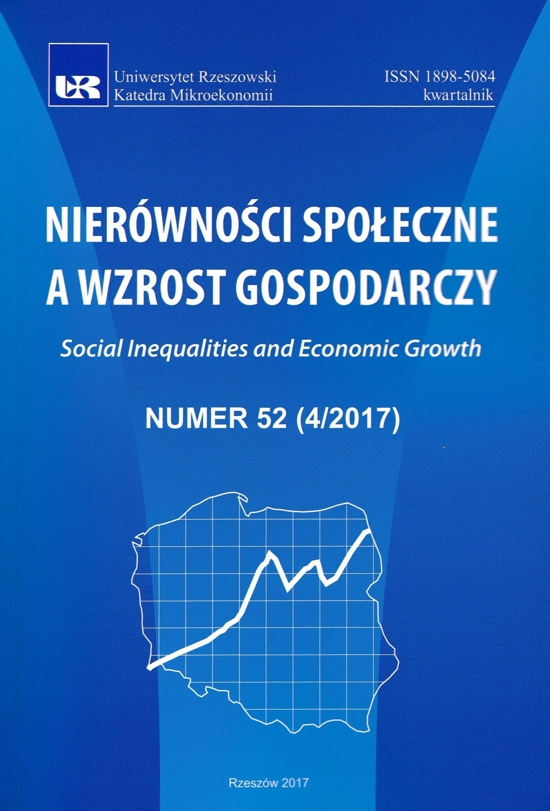Wpływ instrumentów polityki fiskalnej na wahania koniunkturalne w gospodarce polskiej
DOI:
https://doi.org/10.15584/nsawg.2017.4.9Słowa kluczowe:
polityka fiskalna, wahania koniunkturalneAbstrakt
artykule zbadano wpływ narzędzi stosowanych w polityce fiskalnej na zmiany aktywności gospodarczej. Zważywszy na to, że sposób oddziaływania poszczególnych instrumentów fiskalnych nie zawsze jest zgodny z założeniami na gruncie teoretycznym, to w praktyce instrumenty te wykazują działanie stabilizujące lub destabilizujące. Celem głównym artykułu jest próba empirycznego zbadania charakteru oddziaływania wybranych, mierzalnych instrumentów polityki fiskalnej na zmiany aktywności gospodarczej w Polsce w latach 2001–2013. Na tej podstawie oceniona została skuteczność tych instrumentów w prowadzonej polityce antycyklicznej. Analiza uzupełniona została prezentacją najistotniejszych cech morfologicznych wahań koniunkturalnych wyodrębnionych w gospodarce polskiej podstawie wysokości PKB, urealnionych wskaźnikiem CPI. Empiryczna analiza cech morfologicznych wahań koniunkturalnych umożliwiła zbadanie związków pomiędzy zmianami aktywności gospodarczej a kwantyfikowalnymi strumieniami pokazującymi efekty oddziaływania instrumentów polityki fiskalnej. W pracy przyjęto hipotezę, iż realizowana w Polsce polityka fiskalna w niskim stopniu zorientowana jest na realizację celów antycyklicznych. Z przedstawionych rozważań dotyczących skuteczności prowadzonych w gospodarce polskiej działań antycyklicznych można wnioskować, że polityka ta charakteryzuje się niską efektywnością. Polityka fiskalna realizowana w Polsce nie była konsekwentna i słabo zorientowana na realizację celów antycyklicznych, co potwierdziło sformułowaną we wstępie hipotezę. Kierunki zmian stosowania większości instrumentów fiskalnych w czasie trwania cyklu koniunkturalnego były rozbieżne z postulatami teoretycznymi, a uwaga ta dotyczy głównie instrumentów podatkowych.Downloads
Download data is not yet available.
Pobrania
Opublikowane
2020-11-13
Jak cytować
Spychała, J. (2020). Wpływ instrumentów polityki fiskalnej na wahania koniunkturalne w gospodarce polskiej. Nierówności Społeczne a Wzrost Gospodarczy, 4(52), 136–145. https://doi.org/10.15584/nsawg.2017.4.9
Numer
Dział
Artykuły
Licencja
Prawa autorskie (c) 2017 Uniwersytet Rzeszowski

Utwór dostępny jest na licencji Creative Commons Uznanie autorstwa – Na tych samych warunkach 4.0 Miedzynarodowe.


